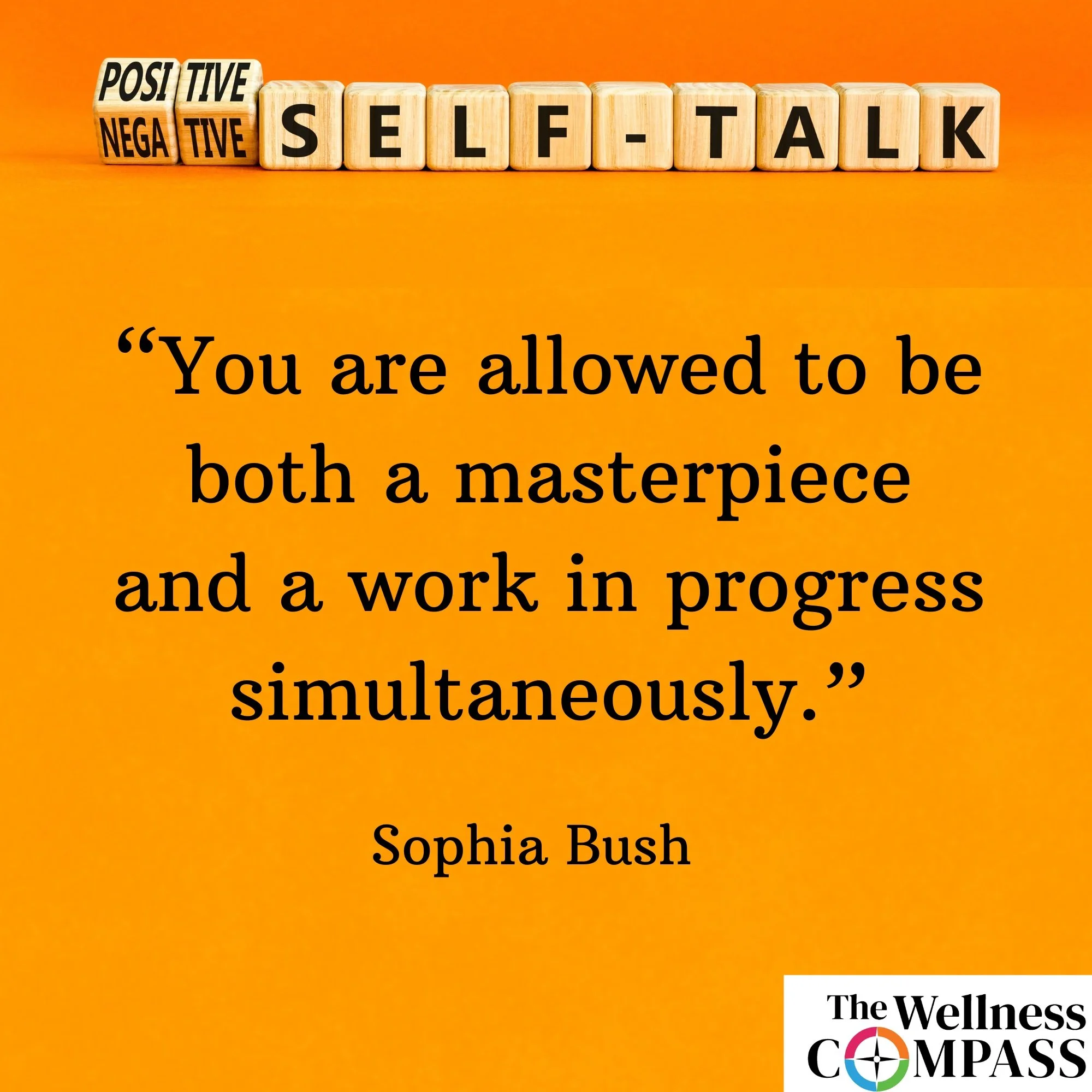(Click on the player at the top to listen to this ten-minute episode)
What follows is the weekly column we email every Friday that is a companion to this weekly podcast. This podcast episode expands on the content of the column.
Practicing Self-Compassion
We are excited to begin a multi-part series on “Practices for Enhancing Our Wellbeing,” in which we will explore the practices that we have found to be foundational for wellness, both in our own lives and in the lives of the people we are honored to help.
We start with the practice of self-compassion. This is a good one to begin with because, unfortunately, just bringing up the topic of wellness creates a self-critical reaction for many people. This reaction is often accompanied by a long list of “shoulds.” “I really should……get more sleep, eat better, spend more time with family and friends, create a budget, and spend more time nurturing my spiritual life…..”
Our Wellness Compass Initiative (along with its partner, the Living Compass Spirituality and Wellness Initiative) is a strength-based, love-based initiative with no room for shame, guilt, or blame. This is because the inner critic is an ineffective teacher and motivator. We don’t grow and change because we should or because if we don’t, we will think less of ourselves. What would you most likely feel, or how might you react, if someone were to tell you that you should change in some way? You would most likely recoil and resist and might even feel ashamed or angry. That is, unfortunately, how most of us also respond when we recognize there is a change that our life would benefit from.
When we, however, view ourselves and our wellbeing through the lens of self-care and self-compassion, we are kind and encouraging to ourselves. We support any desire we have to make a change with grace and patience. We become cheerleaders for ourselves, just as we would cheer on others, such as friends or family members, who share with us a change they are seeking to make in their lives.
It is worth noting that grief is one area in which we often witness people have difficulty with self-compassion. It’s not uncommon to hear someone ask, “What’s wrong with me that I still get so upset about my loss?” The answer is there is nothing wrong. Grief has no timetable or expiration date. It ebbs and flows as long as it needs to, and each person’s journey with grief is unique. Lovingly and tenderly accepting one’s feelings of grief is a beautiful way to practice self-compassion.
Some might think that too much focus on loving and caring for ourselves leads to self-centeredness. In our experience, that is not the case at all. Loving ourselves does not create self-centeredness; loving ourselves creates a centered self. In fact, from a place of being a more centered self, we can grow, change, and love others more fully.
As we begin this series on “Practices for Enhancing Our Wellbeing,” we invite you to start by practicing self-compassion and care towards yourself this week. For each of us, that will mean something different.
What does it mean for you? What is one small thing you could do for yourself this week that would be an act of self-care and self-compassion?
Sign up for Your Weekly Wellness Compass to receive weekly an email each week that announces when a new podcast episode has been released and also includes a transcription of the episode for those who prefer to read instead of listen. Each episode is designed to help you for navigate your week ahead with clear attention and intention.
ABOUT THE CREATORS:
Holly Hughes Stoner, LMFT and Scott Stoner, LMFT, are both licensed marriage and family therapists who are partners in life and in work. They are the Co-Directors and Co-Creators of the Wellness Compass Initiative, a non-profit initiative that crates preventative wellness materials for adults, families, and teens. They live in Madison, Wisconsin and are the parents of three adult children and are blessed with two grandchildren, as well.


